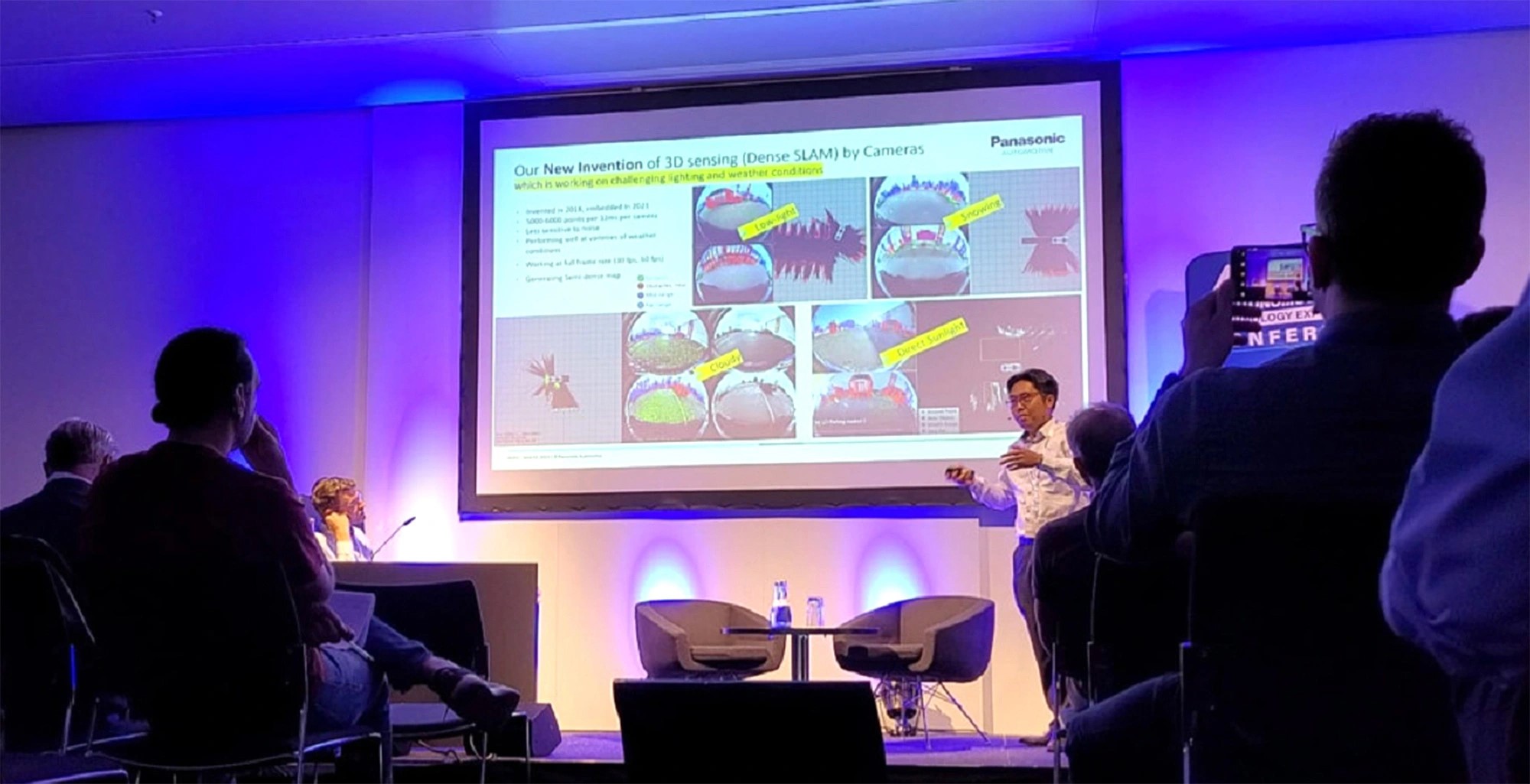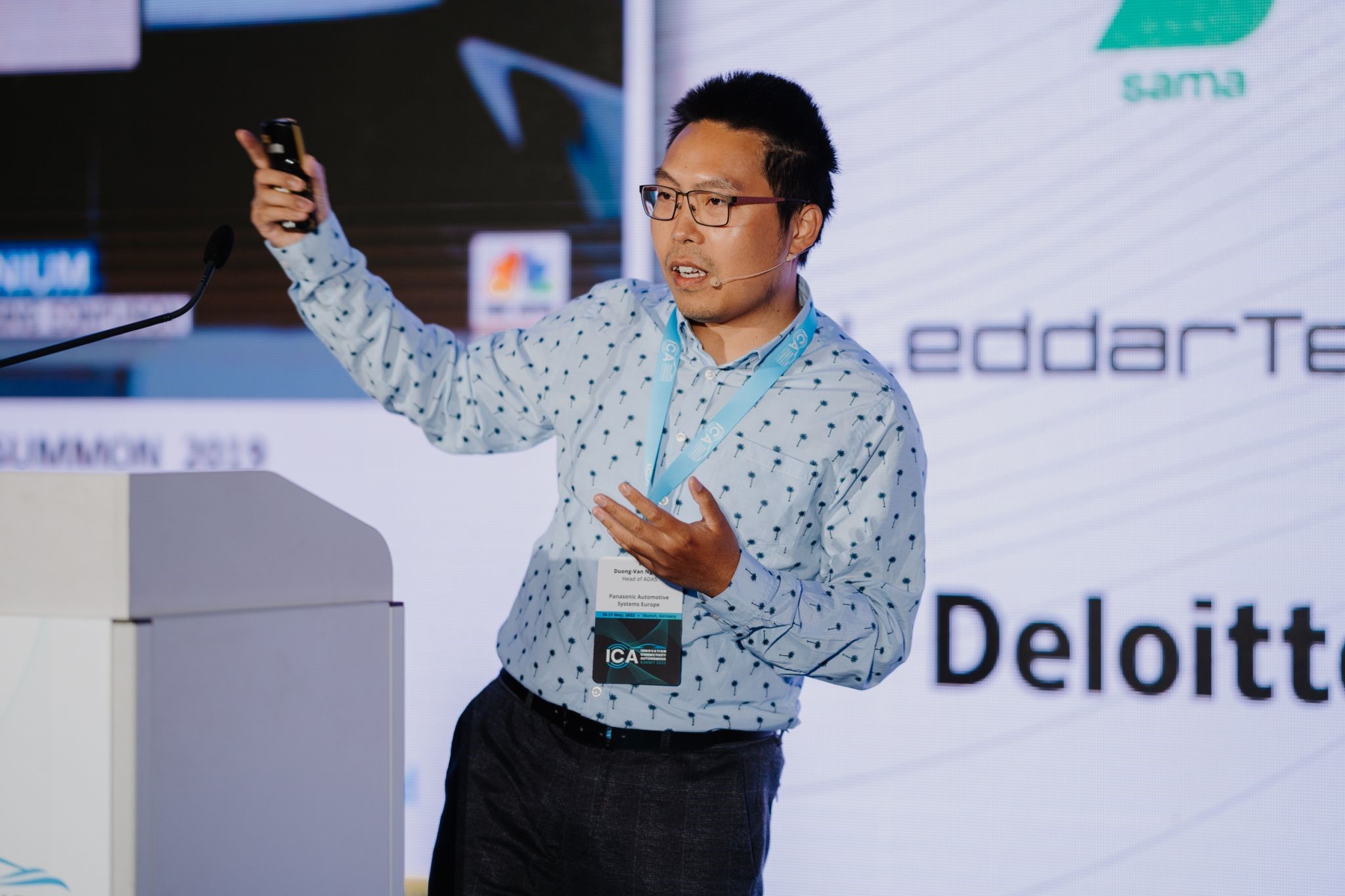At the ADAS & Autonomous Vehicle Technology Expo 2023 taking place on June 13-15 in Stuttgart, Germany, Dr. Nguyen Van Duong announced a new invention and technology for self-driving cars in urban areas.
This announcement, including three inventions, has attracted great attention and received positive feedback from both academic and industrial experts.
Professor Jaka Sodnik, from the University of Ljubljana in Slovenia, commented: "Dr. Duong's research group has brought an important step forward toward solving the autonomous driving problem in urban areas, thanks to its completeness and applicability in a large-scale context."
Meanwhile, Japhael Trindade, chief architect at Huawei in Germany, said: "This is a low-cost solution, which is highly applicable not only to high-end but also to low-end cars. This helps to overcome the bottleneck that is holding back autonomous cars or autonomous systems from becoming an everyday reality."
Self-driving cars: Current issues, challenges, and solutions
Indeed, the concept of the 'intelligent car”' is not new, as it has been around with great attention from the research community and huge investment from industry in the past two decades.
A semi-automatic vehicle with lane-keeping and lane-changing capabilities first hit the highway in 2018. At the end of 2021, Mercedes-Benz introduced the S-Class model, which could drive fully automatically at a speed of up to 60km per hour in the event of a traffic jam. This is the first level-3 automatic vehicle in a total of five categories to be launched worldwide.
According to Forbes' automotive report in February, test cars of companies like Waymo and GM Cruise have reached the milestone of more than one million miles of fully autonomous urban driving without a human monitor and six million miles with human safety monitors.
However, they do not guarantee practical applicability because the investment and production costs are hefty.
This is beyond the affordability of passenger car end-users and on the other hand seriously affects the financial situation of firms when they are used as vehicle-like service. Indeed, Waymo lost more than $5 billion in 2021 and GM Cruise spent up to $5 million per day deploying its self-driving system in densely populated San Francisco.
Truly autonomous cars are not yet on the roads and it is expected to be a long journey toward self-driving cars on a large scale.
Autonomous driving is one of the most difficult problems of mankind so far, as it requires high technology integrated from many different industries such as robotics, artificial intelligence (AI), automation, materials, mechanics, computer science, and more.
Meanwhile, the self-driving car problem becomes many times more difficult in the urban environment than in the highway environment because there are too many diverse obstacles and complicated situations to control. So it becomes a challenge for the automotive community.
Instead of trying to solve the problem completely like Waymo and GM Cruise at too high a cost, Dr. Duong aims for a scalable solution with a camera-based core technology.
For that aim, he presented three important inventions including: (1) three-dimensional sensing, (2) automatic calibration, and (3) asynchronous map updates for multiple sensors (an efficient integrated solution for creating detailed maps).
Based on the inventions (1) and (2) together with AI-powered object recognition solutions, the research team is able to create a camera-based level 2+ (semi-automated) vehicle system architecture.
The invention (3) can upgrade the system to level 3 and level 4 when integrated with more advanced sensors.
In this way, the solution can be used for both affordable vehicle models and luxury vehicles with high-end sensors such as Radar and Lidar.
|
|
| Dr. Nguyen Van Duong is the opening speaker at the Innovation Connectivity Autonomuos - ICA Summit 2022 held on May 30-31, 2022 in Munich, Germany. Photo: Supplied |
Strong competition
Recently, some automakers such as Daimler AG (Germany), BMW (Germany), Tesla (USA), and NIO (China) have deployed AI recognition technology and achieved extraordinary success.
Dr. Duong even believes that NIO might become one of the major players in the industry if they keep a good pace for technological development and low prices in the long run and on a larger scale.
“In my opinion, NIO's cars are of high quality and the functions of their smart cars are even slightly better than other models within the same market segment. This has increased the pressure on other competitors from Europe and America,” said Dr. Duong.
While the sensors, ECUs, and luxury parts raise the price of the Mercedes-Benz S-Class to more than US$200,000, NIO's product can be sold for half of that.
Meanwhile, Dr. Duong said that in their estimation, the high-end sensors of NIO's autonomous vehicles may be equal to or even more expensive than those of the Mercedes-Benz S-Class model.
From this point of view, it is highly likely that NIO is taking losses to have a big impact on customer appeal.
At the same time, in order to make the price more affordable, Tesla is focusing only on the camera system to work on solutions for automated vehicles, as they announced in 2022.
However, it would not be a comprehensive solution to only use AI for object detection and environmental sensing, as there are countless objects in urban traffic which current AI solutions show limitations in recognizing.
A total of 736 accidents have occurred in the last two years, which is a remarkably high number leading to doubt from industry experts about Tesla’s AI solution.
In fact, Tesla's approach cannot be considered rational in the race of automated technologies that are safe and sustainable, noted Dr. Duong.
The Vietnamese scientist said that in addition to applying AI, his team’s three inventions would also help car systems better understand their surrounding environment.
“Our system architecture allows semi-automatic (level 2+) if only the camera is used, while level 3 and level 4 require additional sensors to ensure safety. So I think our flexible and extensible approach will go further and bring more benefits on a large scale”, Dr. Duong said.
Potential opportunities for Vietnamese partners in Europe
As a scientist and an expert who has made many significant contributions to the automotive industry in Europe, Dr. Duong said that he is looking forward to establishing cooperation between Vietnamese and European partners.
“When reviewing projects to be funded by the EU Commission in April, I was in contact with a number of universities, research institutes, and companies in Vietnam,” Dr. Duong recalled. “There are candidates who have passed the qualifying round and entered the final round. Unfortunately, the final decision is left to another country.”
Nevertheless, Dr. Duong considered this experience as a first step to help Vietnamese candidates become known, and thus opening up more opportunities in the near future.
Dr. Nguyen Van Duong is the head of the ADAS department at Panasonic Systems Automotive Europe (PASEU). He is the representative of PASEU at the EU Commission.
He has been elected as a senior member of IEEE Society as well as a member of IEEE P2020 Automotive, IEEE Robotics, IEEE ITS, and EU ITS.
He also serves as an editor and advisory board member for a number of journals and conferences.
Currently, Dr. Duong holds 13 patents and has authored hundreds of journal articles.
He was given five prestigious European Research Council awards, including CARAMEL (2019), CPSOSAWARE (2020), TRUSTEE (2022), BERTHA (2023) and ZEV-UP (2023).
Like us on Facebook or follow us on Twitter to get the latest news about Vietnam!

















































